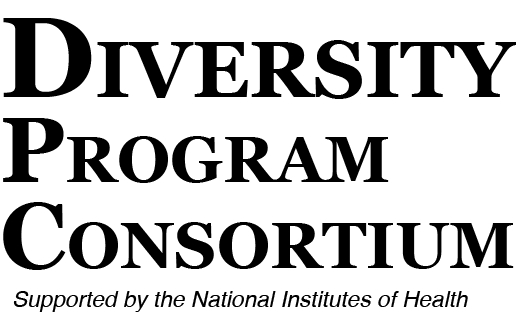



BUilding Infrastructure Leading to Diversity (BUILD) are programs funded by the National Institutes of Health (NIH) to understand effective approaches to engaging, training and mentoring undergraduate students in biomedical research fields. The programs also focus on faculty development and research infrastructure at their local institutions. These BUILD sites aim to broaden the pool of students engaged in biomedical research training and test what works, for whom and in what contexts. This may yield useful information that could have a widespread impact on building a diverse NIH-funded workforce.
California State University, Long Beach (CSULB) : CSULB BUILD
The CSULB BUILD Program offers intensive research-training opportunities for undergraduate students interested in pursuing a research career in biomedical research.
Biomedical research uses innovative methods to examine the cause, diagnosis, prevention, and treatment of diseases to improve health and well-being. It is conducted across a number of different disciplines (e.g., engineering and the behavioral, biological, clinical, physical, public health and social sciences) and can include basic, applied, and translational approaches to studying several health issues facing our communities and our nation.
Funded by the National Institutes of Health (NIH), the CSULB BUILD Program is committed to providing exceptional research and skills training to the next generation of biomedical scientists in order to advance scientific knowledge and technology contributing to the improvement of every individual's health in the U.S. as well as around the world.
California State University, Northridge (CSUN) : BUILD PODER
Building Infrastructure Leading to Diversity (BUILD) Promoting Opportunities for Diversity in Education and Research (PODER) is an undergraduate research training program funded by the National Institutes of Health (NIH). In a supportive community, sophomores, juniors, and seniors take classes and work directly with professors on research projects that relate to health – from the molecular to the planetary! From public health to philosophical frameworks for pain, BUILD PODER seeks to generate a vibrant, socially responsible and open environment for asking new research questions and using new methods to reduce health disparities. In the long-term, BUILD PODER's goal is to increase representation of those whose health has been traditionally been poorer to become researchers themselves, biomedical researchers who make social change by studying the health influence, say, of local landfills or neighborhoods with more liquor stores than grocery stores.
Morgan State University (MSU) : ASCEND Center for Biomedical Research
ASCEND is "A Student-Centered, Entrepreneurship Development (ASCEND) Training Model to Increase Diversity in the Biomedical Research Workforce."
The purpose of this 5-year (2014-2019) award from the National Institutes of Health is to strengthen Morgan State University's biomedical training and research infrastructure, with the ultimate goal of training undergraduate students to become outstanding biomedical researchers.
ASCEND will create a new cadre of biomedical researchers who are both familiar with the root causes of health and health disparity problems and highly competent to address them.
Portland State University (PSU) : BUILD EXITO
The BUILD EXITO Model aims to identify students early in their college career and engage them in finding solutions to today's major health problems. Students at PSU and BUILD EXITO partnering community colleges and universities will have hands-on research skills at every stage of their undergraduate education.
BUILD EXITO brings together faculty and researchers from PSU, OHSU and educators from across the Pacific Rim., including faculty from Portland Community College, Chemeketa Community College, Clackamas Community College, Clark College, University of Alaska, University of Hawai'i at Manoa, University of Guam, American Samoa Community College and Northern Marianas College.
San Francisco State University (SFSU) : SF BUILD
SF BUILD (Building Infrastructure Leading to Diversity) is a project funded by a grant from the National Institutes of Health (NIH) for Enhancing the Diversity of the NIH-funded Workforce. SF BUILD is led by San Francisco State University in partnership with University of California, San Francisco (UCSF).
SF BUILD's mission is to enhance diversity of the biomedical research workforce by transforming the teaching and research environments at SF State. SF BUILD creates engaging and supportive spaces where students and faculty can safely represent different backgrounds and perspectives. Additionally, in partnership with UCSF, students and faculty receive training and mentoring to make significant contributions to biomedical research by asking innovative questions that are relevant to local communities.
University of Alaska Fairbanks (UAF) : BLaST
The BUILD-funded Biomedical Learning and Student Training (BLaST) program will enhance capacity for undergraduate biomedical research training and efficacy for engaging students from diverse, especially rural Alaskan, backgrounds in education and training for biomedical research careers.
The program's goals are to emphasize active and experiential learning throughout undergraduate curricula to enhance student engagement, fully integrate teaching and research so students are immersed in biomedical research throughout their undergraduate study, embed students in a biomedical learning community that takes a holistic approach to student development by emphasizing cultural inclusiveness and comprehensive advising as well as training in critical-thinking and problem-solving skills, and increase diversity of the biomedical workforce by increasing the number students from rural Alaskan and Alaska Native backgrounds who pursue degrees related to biomedicine.
University of Detroit Mercy: ReBUILDetroit
The consortium of Marygrove College, University of Detroit Mercy and Wayne State University forms the REBUILD Detroit Project to fuel the academic renaissance of Detroit by establishing Detroit as the center for biomedical research training for underrepresented undergraduate students.
REBUILD Detroit’s overarching vision is to identify and improve, in a transformative manner, the recruitment and retention of underrepresented students into biomedical degree programs, introduction to biomedical career opportunities, and ultimately transition into personally rewarding graduate education and advanced careers in the biomedical sciences.
REBUILD Detroit has an overall objective to have at least 75 percent of BUILD Scholars graduate with baccalaureate degrees in biomedical science, or related fields, after completing four years of full-time study and have 50 percent of those graduates matriculate into biomedical research doctoral programs.
University of Maryland, Baltimore County (UMBC) : STEM BUILD at UMBC
STEM BUILD at UMBC is an undergraduate success research initiative and research study at UMBC funded by the National Institutes of Health (NIH). UMBC is investigating ways to enhance the diversity and success of students who have the goal of pursuing baccalaureate degrees in the sciences, technology, engineering, and mathematics (STEM).
STEM BUILD at UMBC combines innovation with leveraging effective components of existing UMBC programs to create a multifaceted new student support model. It builds on the best that UMBC has to offer, from the supportive peer networks of the living-learning communities to the applied learning and internship placements of the Shriver Center. The initiative builds on the rigorous undergraduate research preparation that is a hallmark of the MARC U*STAR program, McNair Scholars Program, and UMBC's partnership with the Howard Hughes Medical Institute. It expands the community college partnerships of the Gates STEM Transfer Student Success Initiative and the proactive mentorship of the Meyerhoff Scholars Program, and much more.
The five-year project includes collaborations with five community colleges, Gallaudet University, and the University of Maryland School of Medicine. As detailed in the five proposals that were funded by NIH to establish STEM BUILD at UMBC, the first six months of the project have been devoted to completing plans for the launch of student-focused interventions in Summer 2015.
University of Texas, El Paso (UTEP) : BUILDing SCHOLARS
Building Infrastructure Leading to Diversity Southwest Consortium of Health-Oriented Education Leaders and Research Scholars (BUILDing SCHOLARS) is a center of excellence established at The University of Texas at El Paso with support from the National Institutes of Health - Common Fund.
BUILDing SCHOLARS' goal is to implement a suite of programs and activities that will positively transform the training of the next generation of biomedical researches from U.S. Southwest groups through a multi-institution consortium in Texas, New Mexico and Arizona, as well as three extra-regional sites.
Xavier University of Louisiana :Project PATHWAYS
The goal of the Project PATHWAYS award is to transform Xavier's programs through the redesign, supplementation and integration of career services, academic advising, tutoring, personal counseling and the Center for Undergraduate Research (CUR). BUILD also provides funding for the enhancement and expansion of student research training activities in STEM fields, better student preparation for graduate and professional degree programs in biomedical sciences, increased support and guidance for faculty research mentors, and improvement of STEM curricula.
As part of Project PATHWAYS, Xavier University has developed relationships with a number of partner institutions. These institutions will be working together with Xavier to enhance research capabilities and experiences for students.